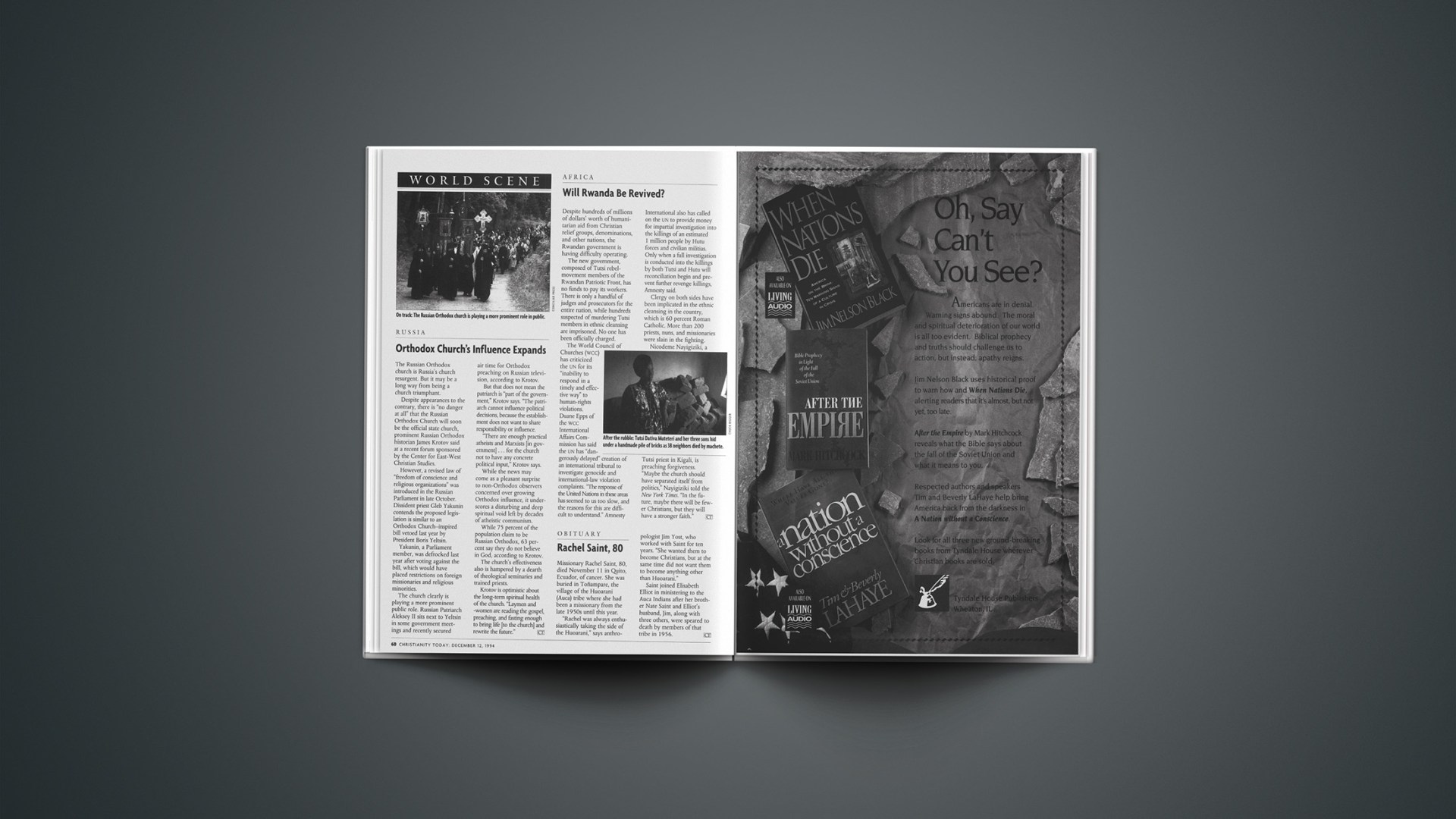The Russian Orthodox church is Russia’s church resurgent. But it may be a long way from being a church triumphant.
Despite appearances to the contrary, there is “no danger at all” that the Russian Orthodox Church will soon be the official state church, prominent Russian Orthodox historian James Krotov said at a recent forum sponsored by the Center for East-West Christian Studies.
However, a revised law of “freedom of conscience and religious organizations” was introduced in the Russian Parliament in late October. Dissident priest Gleb Yakunin contends the proposed legislation is similar to an Orthodox Church-inspired bill vetoed last year by President Boris Yeltsin.
Yakunin, a Parliament member, was defrocked last year after voting against the bill, which would have placed restrictions on foreign missionaries and religious minorities.
The church clearly is playing a more prominent public role. Russian Patriarch Aleksey II sits next to Yeltsin in some government meetings and recently secured air time for Orthodox preaching on Russian television, according to Krotov.
But that does not mean the patriarch is “part of the government,” Krotov says. “The patriarch cannot influence political decisions, because the establishment does not want to share responsibility or influence.
“There are enough practical atheists and Marxists [in government] … for the church not to have any concrete political input,” Krotov says.
While the news may come as a pleasant surprise to non-Orthodox observers concerned over growing Orthodox influence, it underscores a disturbing and deep spiritual void left by decades of atheistic communism.
While 75 percent of the population claim to be Russian Orthodox, 63 percent say they do not believe in God, according to Krotov.
The church’s effectiveness also is hampered by a dearth of theological seminaries and trained priests.
Krotov is optimistic about the long-term spiritual health of the church. “Laymen and -women are reading the gospel, preaching, and fasting enough to bring life [to the church] and rewrite the future.”
Copyright © 1994 Christianity Today. Click for reprint information.










